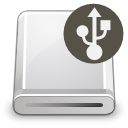Driver categories
- BIOS
- Bluetooth
- Card Readers
- Digital Camera, Webcam
- DVD, Blu-Ray Players
- Firmware
- Graphics Board
- HDD, SSD, NAS, USB
- Joystick, Gamepad
- Keyboard & Mouse
- Mobile Phones
- Modem
- Monitor
- Motherboard
- Network Card
- Other Drivers & Tools
- Printer, Scanner
- Router, Switch, AP
- Sound Card
- Tablets
- TV, HDTV, Projectors
- TV Tuner, Capture Card
- VoIP
- Audio/DJ Gear
- Network / IP / NVR / Surveillance / Baby Camera
- Gaming Consoles
- Smartwatch / Wearables / Fitness
- Drone / Helicopter / Multicopter / Controller
Search
Download Microsoft DirectX End-User Redistributable 9 & 10 (November 2007) driver
Microsoft DirectX End-User Redistributable 9 & 10 (November 2007)
 The operating system should automatically install the appropriate driver Microsoft DirectX End-User Redistributable 9 & 10 (November 2007) to your Microsoft device. If this has not happened, without a manual Microsoft DirectX End-User Redistributable 9 & 10 (November 2007) driver installation your device may not work properly or may not use all of its features. Download the Microsoft DirectX End-User Redistributable 9 & 10 (November 2007) driver and install it on your computer - if the device still is not working properly, read the information further down the site about the Microsoft device from the Other Drivers & Tools category. There you will find helpful tips on how to install the Microsoft DirectX End-User Redistributable 9 & 10 (November 2007) driver. You will also learn why it is so important to have current Microsoft drivers.
The operating system should automatically install the appropriate driver Microsoft DirectX End-User Redistributable 9 & 10 (November 2007) to your Microsoft device. If this has not happened, without a manual Microsoft DirectX End-User Redistributable 9 & 10 (November 2007) driver installation your device may not work properly or may not use all of its features. Download the Microsoft DirectX End-User Redistributable 9 & 10 (November 2007) driver and install it on your computer - if the device still is not working properly, read the information further down the site about the Microsoft device from the Other Drivers & Tools category. There you will find helpful tips on how to install the Microsoft DirectX End-User Redistributable 9 & 10 (November 2007) driver. You will also learn why it is so important to have current Microsoft drivers.
Driver details
| Operating System | / Windows 2K / Windows XP / Windows 2003 / Windows Vista | |
| File size | 64.1 MB | |
| WWW | www.microsoft.com | |
| Category: | Microsoft • Other Drivers & Tools | |
| Number of downloads | 655 | |
| Last update / Date added |
25.07.2014 | |
My device has not been properly installed - what should I do?
 After connecting a new Microsoft device to your computer, the system should automatically install the Microsoft DirectX End-User Redistributable 9 & 10 (November 2007) driver. If this has not happened, you should take the following steps:
After connecting a new Microsoft device to your computer, the system should automatically install the Microsoft DirectX End-User Redistributable 9 & 10 (November 2007) driver. If this has not happened, you should take the following steps:
1. Check if the automatic update is enabled
It is the automatic update feature that is responsible for the installation of the Other Drivers & Tools Microsoft drivers on your computer. If the "UPDATE" feature was disabled, the Microsoft DirectX End-User Redistributable 9 & 10 (November 2007) driver could not be installed.
It is worth noting that in order for the automatic update to work, the computer must be connected to the Internet (perhaps when connecting the Microsoft device the computer temporarily did not have the Internet connection or a WiFi signal was weak making it impossible to download the Microsoft DirectX End-User Redistributable 9 & 10 (November 2007) driver). To make sure, disconnect now and reconnect the Microsoft device again, and maybe this time the driver will be downloaded.
2. Install the driver manually
This solution may seem more complicated - but it is nothing further from the truth. Just download the Microsoft DirectX End-User Redistributable 9 & 10 (November 2007) driver and start the installation (keeping in mind that the Microsoft device must be at the same time connected to the computer). After the installation of the Microsoft DirectX End-User Redistributable 9 & 10 (November 2007) driver, the device should work properly.
The update of the Microsoft device driver which is not working properly
It is very important that the Microsoft devices connected to your computer had their current drivers installed. Without current Microsoft DirectX End-User Redistributable 9 & 10 (November 2007) drivers there is a greater risk of the device malfunction, of the reduction in security, and there is a possibility of the total damage of the Microsoft device. Manufacturers from time to time issue new versions of the Microsoft DirectX End-User Redistributable 9 & 10 (November 2007) software, repairing the errors they find that may cause problems with the Microsoft devices. Therefore, if you notice that a new version of the Microsoft DirectX End-User Redistributable 9 & 10 (November 2007) driver is available, you should install it immediately.
Similar drivers from the Microsoft category
| Driver name | Driver details |
|---|---|
47.8 MB / Windows 8 64 bit |
|
46.3 MB / Windows 8 |
|
1.6 MB / Windows 8 64 bit / Windows Server 2012 / Windows 8.1 64 bit |
|
1.6 MB / Windows 8 / Windows 8.1 |
|
1.5 MB / Windows 9X / Windows 2K / Windows XP |
|
| Show all drivers by Other Drivers & Tools Microsoft | |